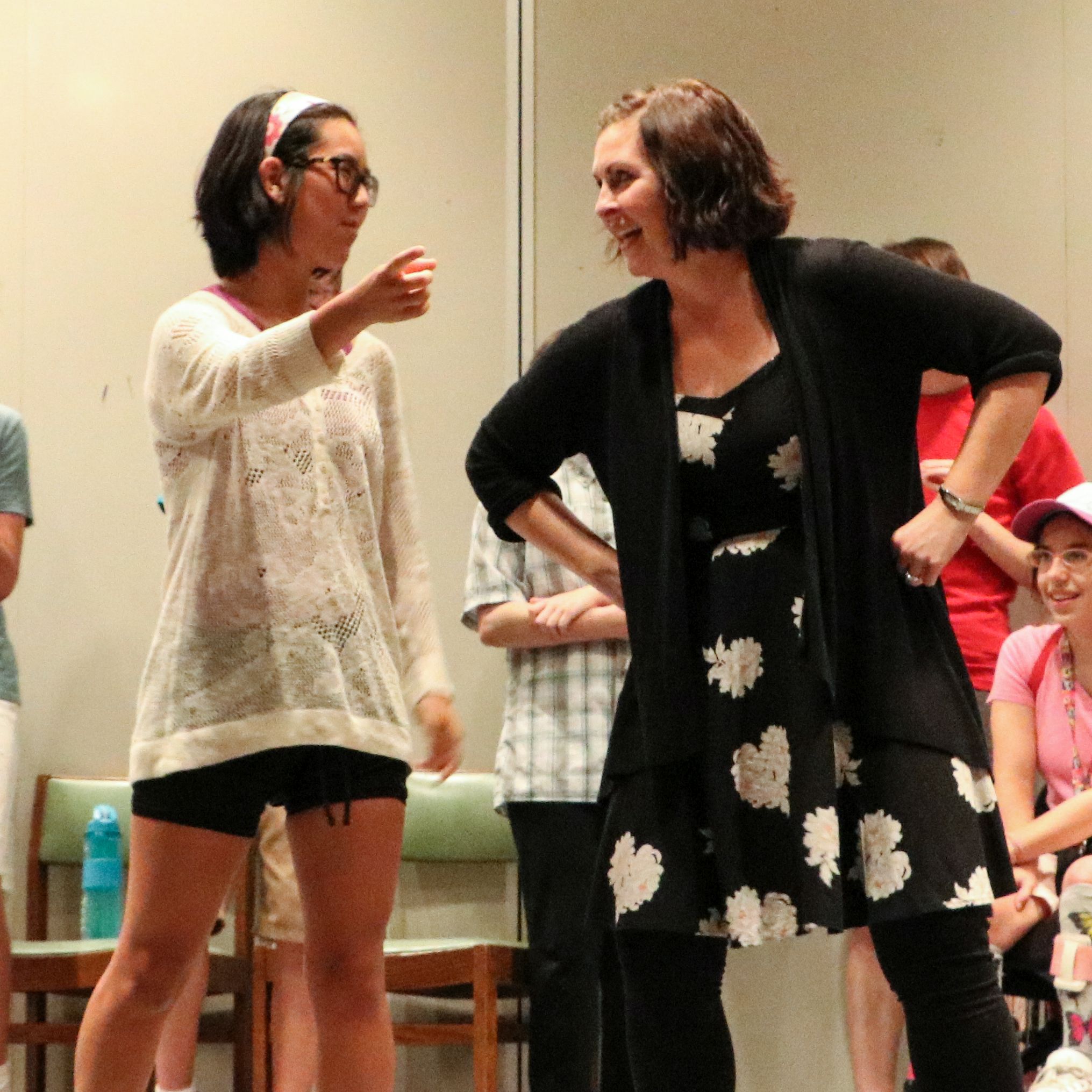We know that strengthening social skills is a key piece of improving life during and after high school for adolescents on the autism spectrum. It can be tough to engage teens in traditional social skills instruction, however. Improv to the rescue!
Improv mirrors everyday social interaction.
Improv doesn't have many rules, but at its heart is the practice of yes, and. In order to co-create plot, character, and setting, improvisers must learn to accept and support each other's ideas. For example, an improviser might begin a scene by saying, "It's a beautiful day on the farm." If her fellow improvisers don't accept the idea of being on a farm, the scene can't go anywhere. That's the yes part. The and happens when scene partners add their own ideas.
Player A: "It's a beautiful day on the farm."
Player B: "It sure is ... I can't believe we had to sell the farm to AgriCorp."
Player B has added the offer of selling the farm, which Player A now must accept and add onto. This cycle of yes, and is the core technology of improv, and it mirrors everyday communication and social interaction. We may not always think of it this way, but every conversation is an opportunity to co-create meaning with others.
Improv creates optimal conditions for learning.
We all learn best when we experience an appropriate level of challenge. If something is too hard, we get frustrated. If something is too easy, we get bored. Educational psychologist Benjamin Bloom identified prior knowledge and experience as a key factor in creating optimal levels of challenge. Learning is most effective when we participate in "just right" activities where we have lots of prior knowledge and experience that can be used to connect new ideas, solve new problems, or practice new skills.
Improv allows us to bring all we know and have done to the stage. At camp, our teens aren't practicing social skills scenarios developed by people twice their age; they're creating characters and stories that reflect their lives. As we challenge our teens to practice new skills, such as mirroring emotion, that are grounded in the familiar, we are able to dial into that “just right” level of challenge. This level of authenticity also helps to keep improv-based social skills instruction from becoming dull, dated, or cheesy.
Along those same lines, improv facilitates what we call "sanctioned mischief." Teens need the freedom to test their limits. They want to show off their quick wit and sharp observations. Imaginary scenarios and made-up characters provide a layer of safety that makes it okay for teens and educators to explore pushing boundaries together.
Improv supports collaboration between teens, peers, and teachers.
Social skills can be a pretty complex topic, but one simple way to break it down is to consider social knowledge and social performance. If two people are going to have meaningful and successful interactions, both parties must share a common body of social knowledge. For example, people need to understand how body language conveys a message.
But understanding isn’t enough! People also need to apply this knowledge in action, flexibly, and in a variety of situations. For example, using positive body language during a job interview can make the difference between being offered a job or not.
The point here is that social interaction is a two-way street. Both parties need to understand the other and take actions that will be interpreted accurately by the other. Ironically, though, traditional social skills instruction often happens in isolation. Reading and responding to social stories, for example, can be helpful in developing social knowledge, but as our colleagues at the Indiana Resource Center for Autism point out, they may not be effective on their own. A traditional method like scripted roleplaying may be helpful in strengthening social performance through practice, but improv can take it further. Improv mirrors the fluid dynamics of real social interaction, it reflects the authentic experiences of youth, and very importantly, it is collaborative. Improv not only engages teens in collaborative interaction with peers; it provides a framework for educators to join their students in real-time social skills practice. That’s some next level stuff!


